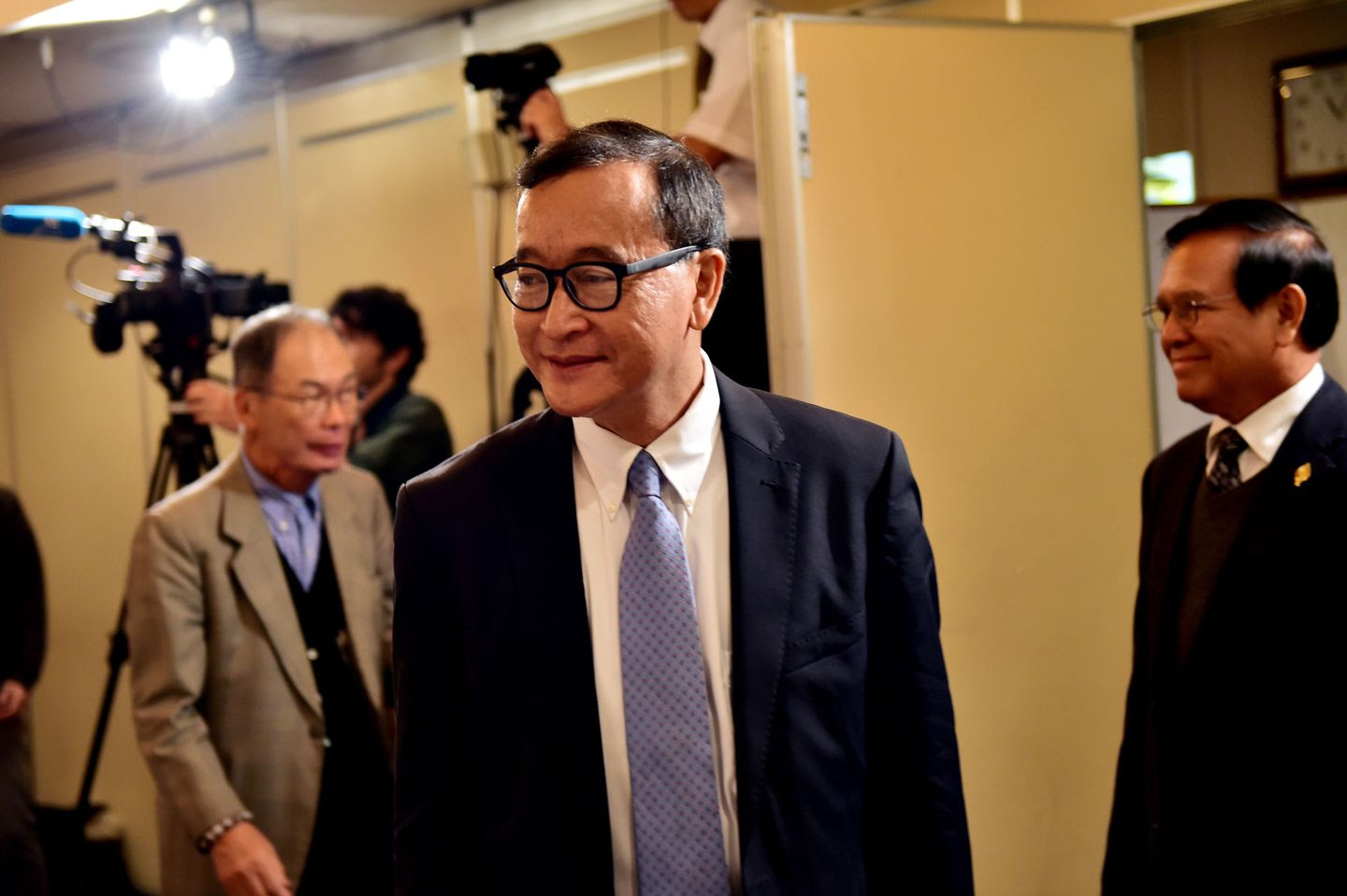Mr. Hun Sen prefers “democracy” in which voters have only one choice. លោកហ៊ុនសែនជ្រើសយកប្រជាធិបតេយ្យដែលប្រជាពលរដ្ឋអ្នកបោះឆ្នោតមានជំរើសបក្សតែមួយប៉ុណ្ណោះ។
Opinion
Cambodia’s strongman wants ‘democracy’ without competition

Cambodian opposition leader Sam Rainsy in Tokyo in November 2015. (Yoshikazu Tsuno/AFP/Getty Images)By Editorial Board Oct. 27, 2019 at 4:25 p.m. PDT
HUN SEN, the authoritarian prime minister of Cambodia, is worried, and is using every trick in the book to threaten Sam Rainsy of the banned opposition Cambodia National Rescue Party, who plans to return to Cambodia from exile on Nov. 9. Mr. Hun Sen dominates parliament and politics — his ruling party won all 125 seats in parliament in the 2018 election — but still shows signs of insecurity over the return of Mr. Rainsy, an exponent of democracy, returning for the first time in four years.
Mr. Rainsy’s supporters have been flashing a nine-fingers sign to mark the date. The prime minister told students during remarks at a recent graduation ceremony, “Don’t ever join the nine-fingers campaign. If you dare do it, you should have one of your remaining fingers cut off.” Speaking of Mr. Rainsy, he added, “It is a plot to carry out a coup d’etat, for regime change! Millions of people and armed forces are waiting for you on November 9. Your head is not made from iron.”
Mr. Rainsy, who led his party to large gains in the 2013 and 2017 elections, has also been blunt about his intentions, telling Radio Free Asia’s Khmer Service that the goal of his return is to lead a “tsunami” of his followers to restore democracy and arrest Mr. Hun Sen. He also vowed to “liberate” Kem Sokha, a co-founder of the banned party, who has been under house arrest since 2017 on fabricated charges of treason.AD
Since Mr. Rainsy’s return was announced in August, Cambodian authorities have launched a fresh crackdown on members of the outlawed party. More than 50 have been charged with crimes, and 31 have been jailed, according to Human Rights Watch. All the charges “appear to be baseless and politically motivated,” Human Rights Watch said. Ideally, Mr. Rainsy’s return should be an opportunity to breathe some competition into the political scene. Mr. Hun Sen prefers “democracy” in which voters have only one choice.
Not surprisingly, the prime minister would also prefer to be unbothered by independent journalism. A trial of two journalists has moved from being unjust to being just farce. Espionage charges should never have been brought against Uon Chhin and Yeang Sothearin, who worked for Radio Free Asia. Their trial concluded Aug. 9. Instead of a verdict, the judge ordered a new investigation. The case stems from Radio Free Asia’s closing of its bureau in Phnom Penh in September 2017, following threats from the government. Three days after the bureau’s closure, the reporters filed one more story, which was published. Nevertheless, the Cambodian government warned that any journalists still working for Radio Free Asia would be treated as spies. In November 2017, the journalists were charged with “illegally collecting information for a foreign source,” and a charge of producing pornography was later added. The journalists say they are innocent and have appealed. The case is a travesty of justice and should be dismissed.





